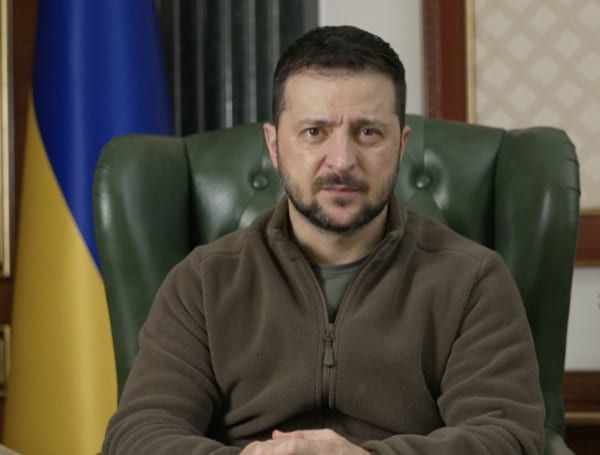Ukrainian President Volodymyr Zelenskyy Two key advisers to former US President Donald Trump have presented him with a plan that could significant

Two key advisers to former US President Donald Trump have presented him with a plan that could significantly shift the dynamics of this protracted war – one that involves using American military aid as a bargaining chip to force Ukraine to the negotiating table.
According to Reuters, retired Lieutenant General Keith Kellogg and Fred Fleitz, both of whom served as chiefs of staff in Trump’s National Security Council during his 2017-2021 presidency, have developed a strategy aimed at ending the Russia-Ukraine conflict. The crux of their plan is to inform Kyiv that it will only receive continued US weapons and support if it agrees to enter into peace talks with Moscow.
The advisers’ proposal outlines a “carrot and stick” approach, where the US would simultaneously warn Russia that any refusal to negotiate would result in increased military aid and supplies for Ukraine.
Read: Former DOJ Official Tells CNN Trump Defense In Florida Docs Case Is ‘Absolutely’ Making Right Moves
Kellogg explained the rationale behind this strategy, stating, “We tell the Ukrainians, ‘You’ve got to come to the table, and if you don’t come to the table, support from the United States will dry up.’ And you tell Putin, ‘He’s got to come to the table and if you don’t come to the table, then we’ll give Ukrainians everything they need to kill you in the field.'”
The plan also envisions a ceasefire based on the current battle lines, with Fleitz suggesting that Ukraine would not be required to formally cede any additional territory to Russia. However, he acknowledged that it was unlikely Ukraine would regain effective control of all the areas it has lost to Russian forces.
The proposal presented by Kellogg and Fleitz would mark a significant shift in the US position on the war, and it may well face opposition from within Trump’s own Republican Party. Some experts have expressed concerns that the plan could give Moscow the upper hand in the negotiations, as it would effectively pressure Ukraine to make concessions.
According to the advisers, Trump responded favorably to their proposal, with Fleitz stating, “I’m not claiming he agreed with it or agreed with every word of it, but we were pleased to get the feedback we did.” The Kremlin, for its part, has indicated that any peace plan proposed by a possible future Trump administration would need to reflect the “real state of affairs on the ground,” but President Vladimir Putin has remained “open” to talks.
Read: CNN’s Jim Acosta Clutches Pearls, Spars With Guest Over Trump’s Migrant Fight Club Joke
If implemented, the Kellogg-Fleitz plan could have far-reaching consequences for the course of the war and the broader geopolitical landscape. On the one hand, it could potentially break the deadlock and lead to a negotiated settlement, potentially saving countless lives. On the other hand, it raises concerns about the potential for Russia to gain the upper hand and the impact on Ukraine’s sovereignty and territorial integrity.
One of the key concerns expressed by experts is the possibility that the plan could result in Ukraine being forced to cede territory to Russia, even if not formally. Fleitz’s acknowledgment that it was unlikely Ukraine would regain effective control of all its lost territories has raised alarm bells among those who believe Ukraine’s sovereignty and territorial integrity should be non-negotiable.
Beyond the immediate impact on the Russia-Ukraine conflict, the Kellogg-Fleitz plan could also have broader geopolitical ramifications.
Other US allies and partners could see the proposal’s potential to shift the balance of power in favor of Russia as a concerning development, leading them to question the reliability of American security commitments, while others would welcome the proposal to end the conflict.
Help support the Tampa Free Press by making any small donation by clicking here.
Android Users, Click To Download The Tampa Free Press App And Never Miss A Story. Follow Us On Facebook and Twitter. Sign up for our free newsletter.
